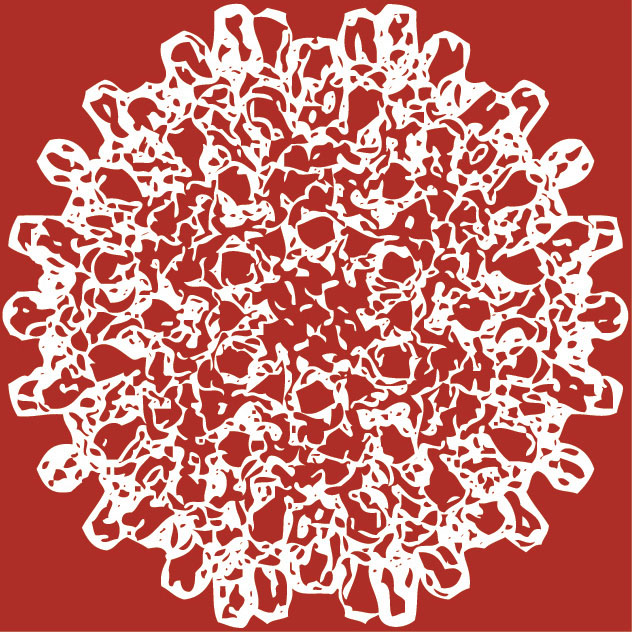Structural Studies Division
The Division of Structural Studies seeks to understand the structure, function and interactions of biologically important molecules at the atomic, molecular and supramolecular level. The analytical methods employed include X-ray crystallography, NMR, electron microscopy and computational and theoretical studies, allied to biochemical and molecular biological approaches. Particular biological areas of focus include protein-nucleic acid complexes, molecules involved in cellular transport or motility, membrane proteins and structures associated with human disease. There is an increasing emphasis on analysis, interpretation and use of the wealth of data rapidly accruing from the multiple genome sequencing projects. There is a continuing development of computational techniques and instrumentation, where these are essential for scientific progress.
Group Leaders and MRC Investigators
- Matteo Allegretti - The macromolecular basis of compartment remodelling
- David Barford - Mechanism and regulation of chromosome segregation in mitosis
- Tanmay Bharat - Prokaryotic cell surfaces
- Andrew Carter - The structure and mechanism of dyneins
- Joe Greener - Differentiable molecular simulation to improve protein force fields
- Jan Löwe - The bacterial cytoskeleton and other molecular machines
- Garib Murshudov - Computational structural biology
- Kelly Nguyen - Molecular mechanism of telomere maintenance and the roles of telomeres in human diseases
- Lori Passmore - Molecular Machines that regulate gene expression
- Venki Ramakrishnan - Structure of the translational apparatus
- Christopher Russo - Atomic resolution imaging of biological specimen by electron cryomicroscopy
- Sjors Scheres - Visualising proteins in health and disease
- Chris Tate - Structure and function of G protein-coupled receptors
- Suyang Zhang - Mechanism of transcription-coupled alternative splicing
Scientific Facilities within the Division
- Baculovirus and Mammalian Tissue Culture
- Crystallisation and X-ray
- Electron Microscopy
- NMR
- Scientific Computing
- Workshops
Emeritus
- Brad Amos - Optical microscope development
- Tony Crowther - Structure of macromolecule assemblies
- Phil Evans - Structural studies of endocytosis components
- Richard Henderson - High resolution 3D structures by electron cryo-microscopy
- John Kendrick-Jones - Multi-functional myosin motors
- Andrew Leslie - Structural studies of macromolecules
- David Neuhaus - Solution structure by NMR spectroscopy
- Daniela Rhodes - Chromatin and telomere structure
- Murray Stewart - Nuclear transport
Past Group Leaders 2008 - 2023
- Linda Amos - Retired September 2009
- M. Madan Babu - Moved to St. Jude Children's Research Hospital, July 2020
- Mark van Breugel - Moved to Queen Mary, University of London, March 2020.
- John Briggs - Moved to The Max Planck Institute, August 2021
- Paula da Fonseca - Moved to University of Glasgow, Institute of Molecular Cell and Systems Biology, April 2020
- Julian Gough - left the LMB, September 2023 to join OutSee Ltd
- Aaron Klug - Retired March 2010
- Meindert Lamers - Moved to Leiden University Medical Centre (LUMC), October 2017
- Peter Lukavsky - Moved to CEITEC, Czech Republic, September 2010
- Alexey Murzin - continues to work on the SCOP database in association with Julian Gough.
- Kiyoshi Nagai (1949-2019) - deceased 2019
- Gebhard Schertler - Moved to Paul Scherrer Institute, Switzerland in December 2009
- Sarah Teichmann - Moved to the Wellcome Sanger Institute, Cambridge, January 2013
- Jernej Ule - Moved to The Francis Crick Institute, London, March 2013

Joint Heads of Division:
David Barford and Sjors Scheres
Divisional Administrator:
Christina Ladell
Assistant Divisional Administrator:
Darcey Luttrell
Division of Structural Studies,
MRC Laboratory of Molecular Biology,
Francis Crick Avenue,
Cambridge Biomedical Campus,
Cambridge CB2 0QH,
UK.
Tel: +44 (0) 1223 267080